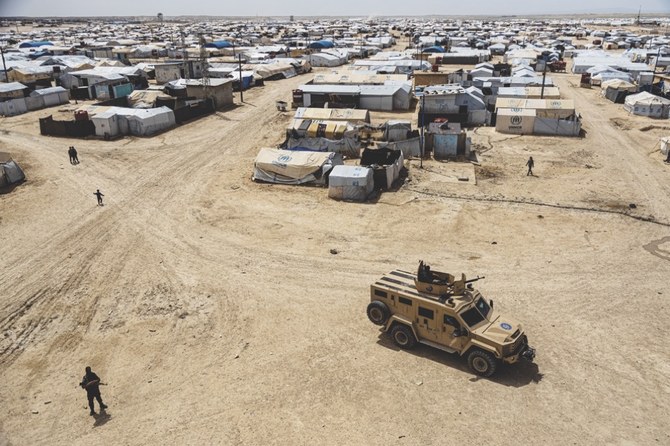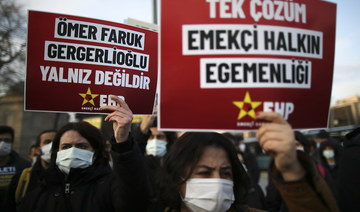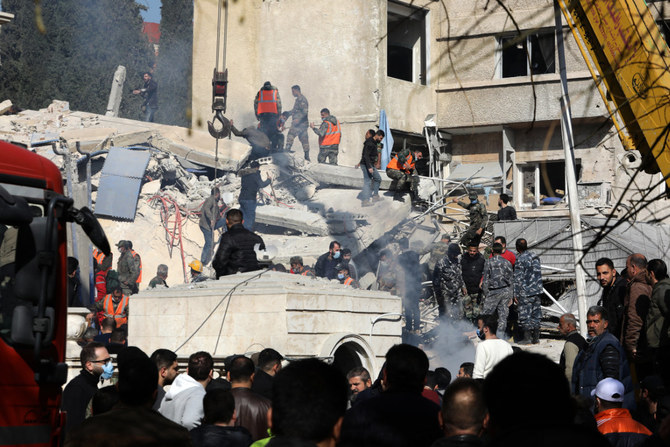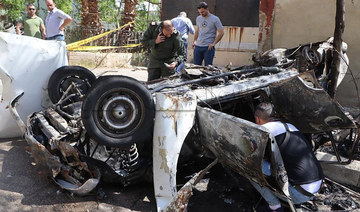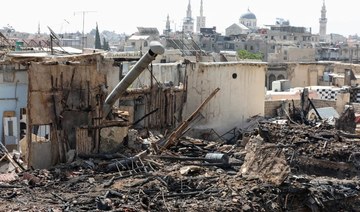DUBAI: Latin America is the new red zone for the coronavirus pandemic, particularly in Brazil where transmissions and deaths have not shown signs for slowing down.
In the Middle East, Dubai shopping malls and business are returning to 100 percent capacity aimed to ensure that the “private sector is able to resume normal activity without compromising on preventive steps to protect people’s health and safety,” according to a government statement.
Neighboring Abu Dhabi also now allows residents to leave their homes for work, shopping or leisure activities although a seven-day ban on travel outside the emirate or outside their cities.
The UAE’s annual midday work ban also comes into force in mid-June for all people whose jobs are outside, a further sign the Emirates is embracing normalcy.
Wednesday, June 3, 2020 (all times in GMT)
18:50 - Egypt announced 1,079 new cases of COVID-19 and 36 deaths from the disease.
17:40 - UAE recorded 571 new coronavirus infections and one death.
15:00 - The United Kingdom's death toll from people who tested positive for COVID-19 has risen by 359 to 39,728, the government said on Wednesday.
Opinion
This section contains relevant reference points, placed in (Opinion field)
A separate tally of UK deaths using official data from England, Scotland, Wales and Northern Ireland, drawn mostly from death certificate data and including suspected cases, showed a total of more than 50,000 earlier on Wednesday.
14:48 - The United States said it will suspend flights by Chinese airlines starting June 16.
14:40 - Belgium will reopen its borders with its EU neighbors from June 15, prime minister Sophie Wilmès announced on Wednesday.
14:20 - The renowned Vienna State Opera will reopen its doors from next Monday — with 100 guests per show in line with anti-coronavirus government guidelines, the opera house announced Wednesday.

14:10 - Britain's Prince Charles said the recovery from the coronavirus crisis represented a "reset moment" for the world and was an opportunity to prioritize sustainability issues, as he made the opening remarks at a virtual World Economic Forum (WEF) meeting.
14:00 - Bahrain announced 263 new cases of COVID-19 on Wednesday.
13:15 - The spread of novel coronavirus has accelerated again this month in Iran which on Wednesday officially confirmed over 3,000 new cases for a third consecutive day.
The country has recorded an additional 3,134 cases, health ministry spokesman Kianoush Jahanpour told state television, bringing the total number of infections to 160,696. READ THE FULL STORY HERE.

12:33 –Saudi Arabia has announced 2,171 new coronavirus cases, increasing the total number of infections in the country to 91,182. The ministry of health has also reported 2,369 new recovered patients and 30 additional fatalities, bringing totals to 68,159 recoveries and 579 deaths.
12:16 – Qatar has confirmed 1,901 new coronavirus cases, bringing the total number of infected people to 62,160.
10:57 – Bahrain decided to delay allowing Friday prayers to be performed in mosques again after reviewing coronavirus updates.
10:30 – Kuwait has confirmed 710 new coronavirus cases, bringing the total number of infected people to 30,069.
10:20 – Austria is lifting all coronavirus-related border restrictions including quarantines for new arrivals from all of its neighboring countries except Italy as of Thursday, Foreign Minister Alexander Schallenberg said on Wednesday.
“We will lift all the coronavirus-related border and health checks in relation to seven bordering countries — those are Germany, Liechtenstein, Switzerland, Slovakia, Slovenia, the Czech Republic and Hungary. We are thereby returning to the pre-corona situation regarding these countries,” he told a news conference.
08:38 – Air Arabia, the only listed carrier in the United Arab Emirates, has made further job cuts due to the business impact of COVID-19.
08:12 – Italy reopened to travelers from Europe, three months after the country went into coronavirus lockdown, with all hopes pinned on reviving the key tourism industry as the summer season begins.

Motorists drive past French gendarmes as they cross the French-Italian border near Menton on June 3, 2020 as Italy reopened its frontiers with Europe. (AFP)
08:10 – Questions are swirling in Africa and elsewhere over the financial wisdom of sustaining prestige carriers that often have a tiny share of an aviation market that sees no recovery in sight.
07:48 – Russia reported 8,536 new cases of the coronavirus, bringing its nationwide tally to 432,277, the third highest in the world.
06:20 – Brazil surpassed 30,000 deaths from the coronavirus outbreak on Tuesday as the disease continued to rip through South America’s worst-hit country.
05:50 – India’s coronavirus infections crossed 200,000, official figures showed, and a peak could still be weeks away in the world’s second-most populous country, where the economy has begun re-opening after a lockdown imposed in March.
05:14 – Throughout January, the World Health Organization publicly praised China for what it called a speedy response to the new coronavirus. It repeatedly thanked the Chinese government for sharing the genetic map of the virus “immediately,” and said its work and commitment to transparency were “very impressive, and beyond words.” But behind the scenes, it was a much different story, one of significant delays by China and considerable frustration among WHO officials over not getting the information they needed to fight the spread of the deadly virus.







